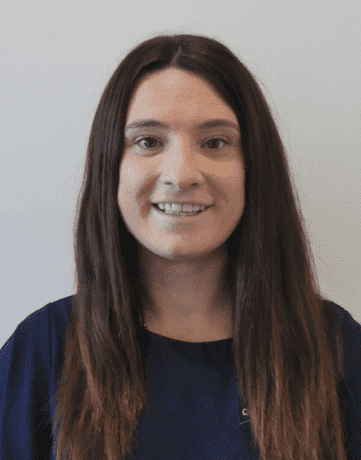Manage your concerns, overcome your fears and feel calm again with support from a Psychologist for anxiety.
Your mind and body are hardwired to react to risky situations by releasing a surge of stress hormones. The result? An increased heart rate, rapid breathing and racing thoughts. While these symptoms should subside once a threat has passed, anxiety may see them persist.
Sometimes co-occurring with symptoms of depression, anxiety refers to prolonged feelings of uneasiness, niggling worry and sometimes even intense panic, in addition to many other possible symptoms. These symptoms may take a toll on your ability to function, socialise with others and enjoy day-to-day life.
Psychological therapy for the treatment of anxiety can help you to take back control of your life. Grace Britton, our Psychologist in Warners Bay, can support you in identifying and managing symptoms with evidence-based psychological therapy tailored to your needs and goals. Take the next step towards meaningful change today.
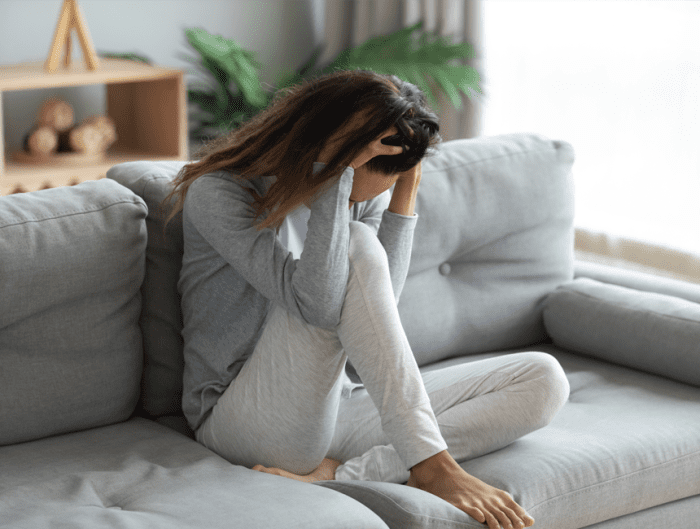
Social Anxiety Disorder
Social anxiety encompasses anxiety over activities like public speaking, performing, eating and drinking, using communal restrooms, dating, and everyday social interactions.
The fear of embarrassing yourself in public or online can overshadow the joy of life and interactions with others, significantly affecting your mental health. Fortunately, therapy for the treatment of social anxiety disorder can help to diminish these detrimental feelings so that you can build relationships with confidence.
Symptoms of Social Anxiety Disorder
- Feeling nervous and on edge in social situations
- Rapid interpretation and response to social cues, often perceiving them negatively
- Constant concern over social interactions
- Avoiding social engagements
- Heightened self-consciousness
- Fixation on how others perceive you
- Fear of being criticised
- Anxiety about physical closeness to people
- Avoiding eye contact and physical proximity to others

Post-Traumatic Stress Disorder
Anxiety-like symptoms may emerge after distressing experiences like the loss of a loved one, suffering an injury, real or perceived threat to life, or enduring abuse. In some cases, intense feelings of fear or powerlessness persist well beyond the incident itself – a type of anxiety called Post Traumatic Stress Disorder (PTSD).
When standard day-to-day experiences begin to provoke involuntary stress reactions, it may be time to consider therapy to address PTSD symptoms. Specific types of treatment for PTSD can help you navigate the effects of trauma, and may assist in symptom reduction.
Symptoms of PTSD
- A constant state of heightened vigilance
- Trouble with focusing
- Distressing thoughts and emotions
- Intrusive flashbacks
- Nightmares and night terrors
- Heightened sensitivity to unexpected stimuli
- Increased irritability
- Memory gaps related to the event
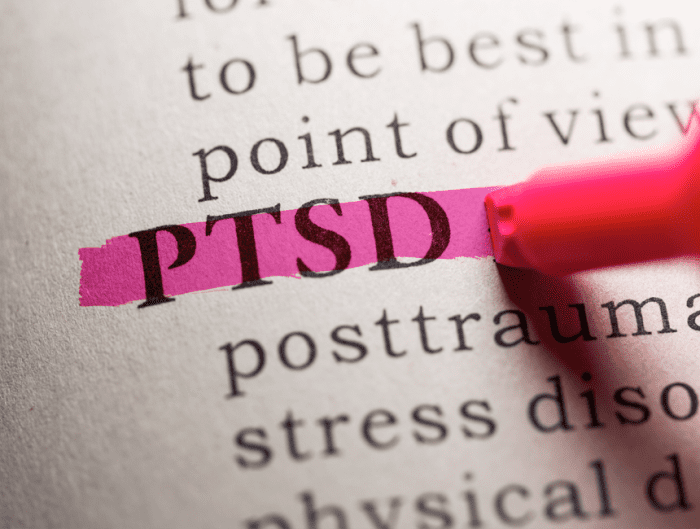
Obsessive Compulsive Disorder
Obsessive Compulsive Disorder (OCD) involves persistent, unwelcome thoughts and specific, repetitive actions that disrupt everyday activities.
You might recognise that your thinking patterns and ritualistic impulses are out of the ordinary, or even irrational. That said, once these habits are established, breaking free from the urge to repeat them can be challenging.
Seeking therapy from a Psychologist for OCD may assist you in identifying and managing OCD triggers, in turn reducing intrusive thoughts and compulsive actions. The most common therapeutic approach for OCD is Exposure and Response Prevention.
Common symptoms of OCD
- Fear of germs and compulsion with over-cleaning
- Extreme need for precision and symmetry, resulting in repetitive actions
- Dread of losing self-control
- Worry about misplacing objects, which can encourage hoarding
- Anxiety about causing a disastrous event
- Constant worry about illnesses
- Overemphasis on superstitious beliefs, which may cause excessive praying and religious rituals

Generalised Anxiety Disorder
Generalised Anxiety Disorder (GAD), as defined by the DSM-5, involves excessive and persistent worry about various life aspects lasting at least six months. Symptoms include uncontrollable anxiety, physical tension, and difficulty concentrating. GAD significantly impacts daily functioning and may require a combination of therapy and medication for management.
Symptoms of generalised anxiety
- Regularly feeling tense and stressed
- Frequent worry over everyday issues like money, work or relationships
- Tight muscles
- Hyperreactivity to stimuli
- Inability to relax
- Being quick to anger
- Increased heart and breathing rates
- Shakiness and dizziness
- Excessive perspiration
- Chest or stomach pains
- Emotional overwhelm
- Rumination
- Catastrophising
- Memory and concentration issues
- Intrusive thoughts
- Social withdrawal
- Sleep problems
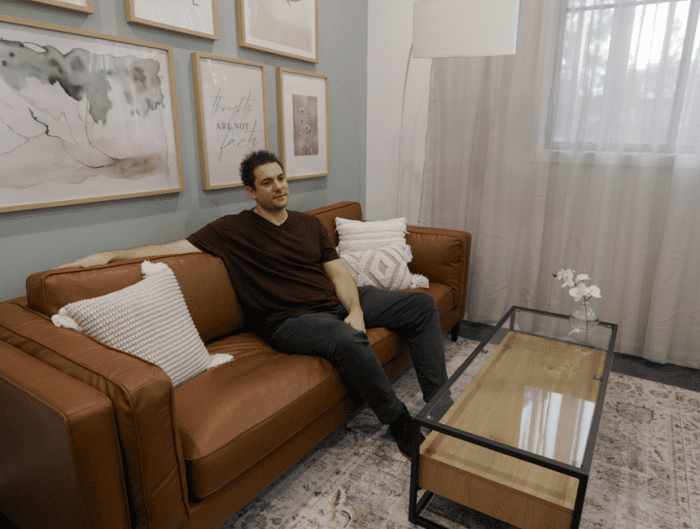
Counselling for anxiety
One step closer to considering counselling to address anxiety?
Our experienced Psychologist can assist to equip you with evidence-based techniques to help tackle anxiety and enjoy life again.
Your personalised therapy plan will be based on a deep understanding of your life experiences, mental health history and present-day functioning – all of which help to identify the type and triggers of your anxiety.
Then we’ll pinpoint the cognitive, emotional and behavioural patterns that are contributing to an ongoing experience of anxiety. That means working with you to establish alternate cognitive patterns and coping strategies in a safe, supportive space. Arrange an appointment for anxiety counselling today and rediscover your peace of mind.
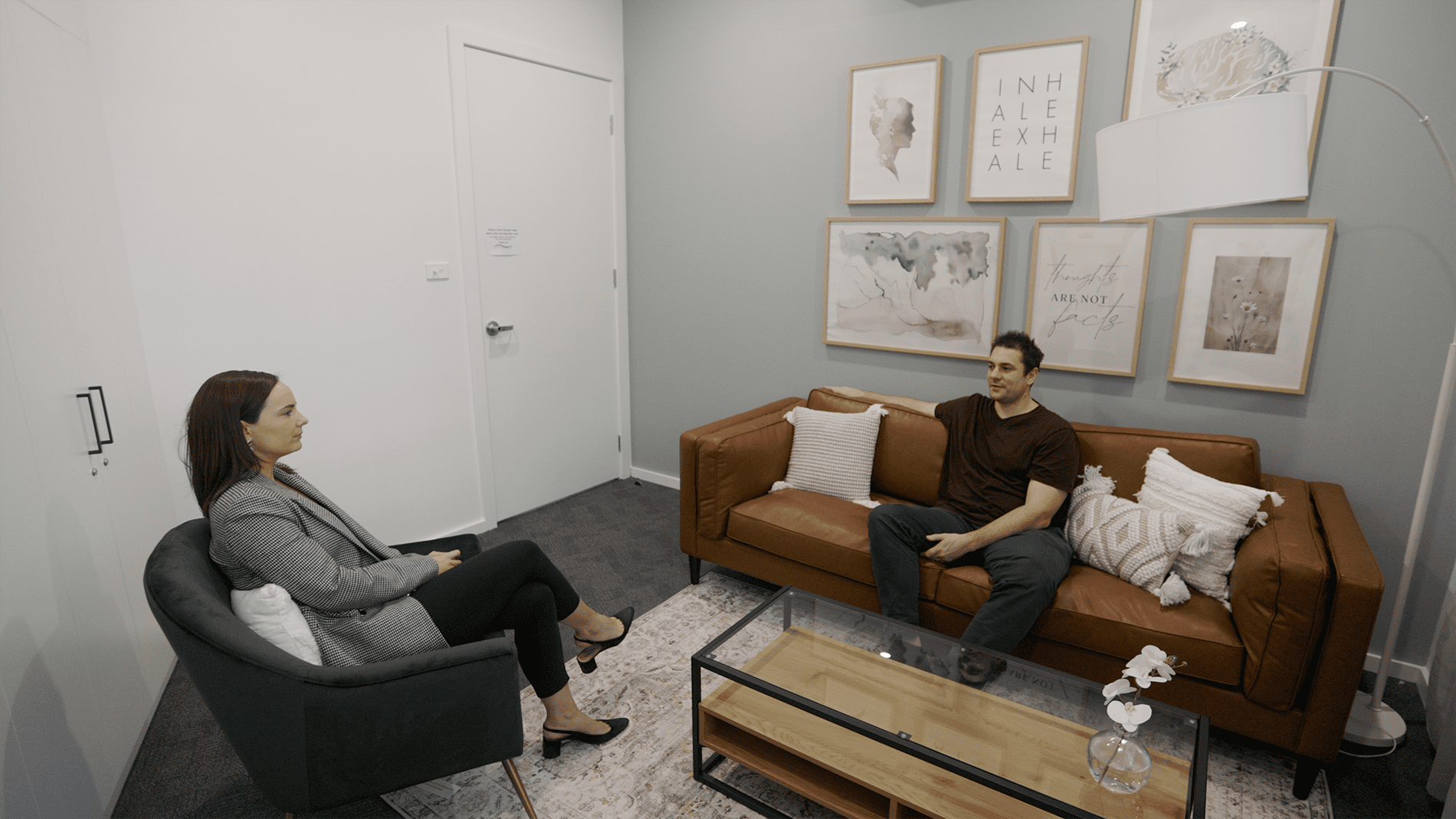
Restore your peace of mind with anxiety counselling near you
Book AppointmentFrequently Asked Questions
Have questions about your next visit? We have you covered!
-
What is an anxiety disorder in psychology?
Anxiety manifests as a sense of discomfort and unease, such as worries or fears. While occasional stress can be a standard reaction to various everyday scenarios, if it is persistent or severe, you might have an anxiety disorder.
Types of anxiety disorders include generalised anxiety disorder, social anxiety disorder, phobias, and separation anxiety disorder. It’s possible to suffer from more than one type of anxiety disorder at once.
The psychological effects of anxiety disrupt everyday life, are challenging to manage, are disproportionate to the actual threat, and may persist for a while. To prevent these experiences, you might steer clear of certain places or situations.
Sound familiar? Anxiety can begin in childhood or adolescence and last into adulthood without intervention. With anxiety counselling, you can learn to tackle your symptoms and live freely again. Book an appointment to get started.
-
What is the difference between stress and anxiety in psychology?
Many people mix up stress and anxiety disorders, yet they are distinct experiences. Above all, stress is temporary, whereas anxiety disorders tend to endure and often require therapy.
Stress is a natural reaction to challenging scenarios or events. It is the body’s response to various stressors, from financial concerns to relationship issues. Although stress is not a pleasant feeling, it sometimes serves as a constructive motivator to overcome obstacles.
Nevertheless, if stress becomes continuous and chronic, it can result in a range of physical and mental health issues like headaches, exhaustion, and depression.
Conversely, anxiety encompasses a range of emotions marked by excessive fear and worry, even in the absence of a clear threat. In contrast to stress, anxiety doesn’t always correlate with a particular event or situation.
Individuals with anxiety disorders often endure persistent feelings of discomfort, nervousness, or fear that get in the way of their everyday activities.
-
What are the causes of anxiety disorders?
Anxiety is caused by a complex, bidirectional interplay of social, environmental and biological factors.
For example, anxiety is technically the consequence of an overactive amygdala, which is the part of your brain that regulates emotions and responses to threatening stimuli. In the case of anxiety, it either fails to switch off despite no present threat or activates regardless of a threat. Additionally, research suggests that women are nearly twice as likely to suffer from anxiety than men*.
Moreover, social and environmental influences can play a role in both the emergence and persistence of anxiety, impacting your ability to engage effectively with those around you. Among these influences are experiences such as childhood trauma, social seclusion, adverse life occurrences, stress linked to work or educational environments, physical or mental health issues, and societal and social pressures*.
-
What is a panic attack?
A build-up of stress may also lead to a heightened state of extreme arousal, known as a panic attack. While the physical symptoms of a panic attack often diminish within a few minutes, the accompanying worry and fear can take far more time to ease.
-
How can a psychologist help with anxiety?
Psychotherapy is a widely accepted treatment in helping lessen the symptoms of anxiety for a better quality of life. An anxiety counselling therapist supports you to:
- Identify contributors to your worries and fears
- Identify, reframe and replace the thought patterns that trigger anxiety
- Adopt sustainable tools to manage its symptoms, ultimately reducing their intensity and frequency
With enhanced awareness and constructive coping mechanisms, you can learn to manage anxiety moving forward.
-
Can a psychologist diagnose anxiety?
Yes. In Australia, appropriately trained Psychologists are qualified to diagnose and provide psychotherapy for mental health conditions like anxiety.
Please note that a Psychologist cannot prescribe medication. If medication is considered to be required as part of your recovery plan for anxiety, you should seek the advice of a Psychiatrist or General Practitioner (GP).
-
How many anxiety counselling sessions will be needed?
The duration of therapy for anxiety depends on personal circumstances, including the nature and degree of anxiety and your response and dedication to therapy.
You might feel a noticeable improvement after a few sessions, or you may require ongoing professional support to keep your symptoms in check.
Your Psychologist will provide you with a more accurate estimate after your initial appointment. Get in touch with Chiropractic Plus to discover more.
-
Will anxiety go away on its own?
While symptoms of anxiety may gradually subside over time, prolonged anxiety can adversely affect your mental well-being. Therefore, seeing a Psychologist for anxiety is a positive step towards a happier and healthier life.
Feel like yourself again sooner with anxiety counselling in Warners Bay near Newcastle. Book an appointment today.
References
1. Remes, O et al. A systematic review of reviews on the prevalence of anxiety disorders in adult populations. Brain and Behavior; 6 June 2016; DOI: 10.1002/brb3.497
2. Marmot, M. Fair society, healthy lives : the Marmot Review : strategic review of health inequalities in England post-2010. (2010) ISBN 9780956487001





